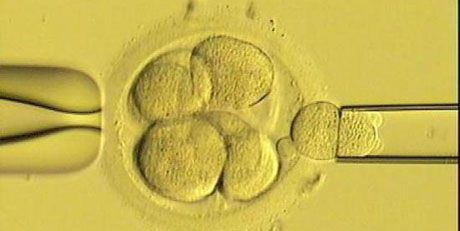Pre-implantation genetic screening
Pre-implantation genetic diagnosis is a useful asset in cases where there is possibility of fetal defect due to a hereditary lesion passed down from a phenotypically healthy or affected parent. This method has caused discordance as to its effectiveness in cases of recurrent pregnancy loss or its use in women of advanced reproductive age.
Among the applications of this method are balanced chromosome rearrangements. Balanced rearrangements appear in individuals with chromosomal rearrangements between one or more chromosomes. Clinical manifestation of the lesion, regardless of whether it involves men or women, can be through recurrent miscarriages or multiple failed IVF cycles and may often be due to a non-balanced rearrangement in the embryo’s chromosome that renders the embryo non-viable. Only through the use of pre-implantation genetic screening (usually one cell screening on day 3 following egg retrieval) can diagnose healthy embryos so that only those embryos will be transferred to the mother.
In couples undergoing balanced rearrangements following recurrent miscarriages, research has shown that the rate of miscarriages was down to 5.3% after diagnosis via pre-implantation screening. The total percentage of gestations in this study was 57.6% with an average 1.24 gestations per couple. The minimum time required by a couple to achieve healthy gestation is positively compared to expectations (4-6 years) in couples who did not undergo pre-implantation genetic screening.
The only disadvantage in this method involves the FISH technique. When this technique of in situ hybridization is applied with special chromosomal screening it cannot provide differential diagnosis between an embryo with balanced chromosomal rearrangement and an embryo which is clinically and genetically healthy. The question whether preimplantation genetic diagnosis (PGD) should be used for screening of aneuploidy in women of advanced age has raised dispute while PGD can be performed only upon strict conditions.








